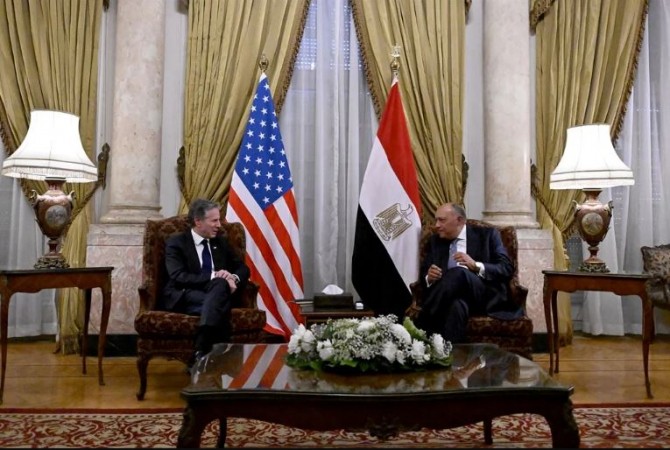
The United Nations Security Council is set to vote on a resolution proposed by the United States, urging a ceasefire in Gaza. Meanwhile, the European Union has called for a "humanitarian pause," adding to the pressure on Israel to end its ongoing bombardment of the Palestinian territory.
The US, traditionally a strong supporter of Israel, has been toughening its stance lately, shifting away from its initial unwavering support for Israeli Prime Minister Benjamin Netanyahu and his actions in Gaza.
The latest resolution draft from the US signals a firmer approach, reflecting increasing global criticism of the conflict that has led to the deaths of about 32,000 Palestinians. Experts warn of a looming famine due to Israel's blockade.
The proposed US resolution emphasizes the urgent need for a ceasefire to protect civilians and allow humanitarian aid delivery. It also demands the release of some hostages held by Hamas since their attack on Israel in October.
Previously, the US refrained from explicitly calling for a ceasefire and has vetoed similar UN resolutions in the past. However, the upcoming vote signals a shift in approach.
US Ambassador to the UN, Linda Thomas Greenfield, announced the vote, stating that the resolution aims to support diplomatic efforts for an immediate ceasefire, hostage release, and increased humanitarian aid.
Some concerns were raised about the wording of the US draft, prompting the drafting of a second resolution with stronger language demanding an immediate ceasefire, supported by eight of the 10 non-permanent Security Council members.
In parallel, European Union leaders meeting in Brussels have also called for an immediate humanitarian pause leading to a sustainable ceasefire in Gaza. They urge the unconditional release of hostages and caution against Israel's plans for a major ground offensive in Rafah, warning of worsening humanitarian crises.
While diplomatic efforts continue at the UN, negotiations mediated by the US, Qatar, and Egypt are ongoing in Doha. Israeli spy chief David Barnea is set to meet with mediators in Qatar on Friday.
US Secretary of State Antony Blinken, actively involved in the conflict resolution efforts, remains optimistic about reaching a deal between Israel and Hamas. Negotiations in Qatar focus on a six-week truce allowing for the exchange of captives.
Hamas insists on a comprehensive deal to end the conflict before releasing hostages, while Israel prefers discussions on a temporary ceasefire.
Israel's Planned Offensive in Rafah Raises Global Concerns
Israeli Forces Eliminate 50 Palestinian Gunmen Near Gaza's Shifa Hospital
Blinken Heads to Middle East Amid Israel-Hamas Conflict Threatening Famine